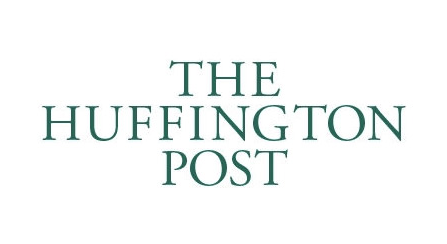Skilled Nursing Fraud
The Skilled Nursing Benefit Has Become a Target for Fraud.
“Today’s settlement is another example of the Department’s efforts to hold skilled nursing facilities accountable for the rehabilitation therapy services they deliver to some of the most vulnerable in our society.” – Stuart F. Delery, Deputy Assistant Attorney General, referring to a Frohsin Barger & Walthall SNF fraud settlement against a Virginia-based provider
Through an extension of the Medicare Part A Hospital benefit, Medicare offers limited coverage of post-hospital skilled nursing care for qualifying patients. 42 U.S.C. § 1495i. In order to qualify for coverage, a patient otherwise appropriate for Medicare must show a qualifying hospital stay of three or more days within the 30 days prior to entering the skilled nursing facility. A physician must order procedures for the patient that are appropriate to be performed only in a Skilled Nursing Facility (SNF), such as rehabilitative therapy, and must certify that the patient’s condition is such that he or she can practically be cared for only in a SNF. In so certifying, the physician must determine that the patient’s condition should improve or achieve stability in response to curative care. The SNF medical staff is required to write a plan of care for each skilled nursing patient based upon the individual’s needs and circumstances. Upon satisfaction of those requirements, Medicare will pay for 100 days of skilled nursing care per-patient, per-illness period – though after the first 20 days, a co-payment of 20% is required of the patient. Once a patient qualifies, Medicare bears all expenses of the SNF, including the patient’s custodial care and room and board (custodial care is not otherwise covered by Medicare). Typically, an SNF receives approximately $650 per day from Medicare for a qualifying skilled nursing patient.
Unfortunately, unscrupulous people and corporations have found a variety of ways to scam the Skilled Nursing Benefit. Both the Office of Inspector General for the Department of Health and Human Services, who manages Medicare, and the Department of Justice have issued warnings regarding skilled nursing fraud. Commenting on a SNF fraud settlement achieved by Frohsin Barger & Walthall, Deputy Attorney General Stuart Delery warned would-be abusers of the Skilled Nursing Benefit that the “provision of excessive and medically unnecessary therapy services will not be tolerated.”
Frohsin Barger & Walthall has Identified the Following Types of SNF Fraud:
- Aggressively recruiting hospital patients who are not appropriate for skilled care, generally by obfuscating the nature of skilled care and emphasizing “free” custodial care
- “Skilling” patients who do not require or cannot benefit from physical, occupational, or speech therapy or other skilled care
- Billing for skilled care through Medicare and Medicaid for services that actually require no skill and are effectively custodial or intermediate maintenance care
- Creating improper relationships between SNFs and hospices, whereby patients are shuffled between benefits to increase billing, without regard to propriety or patient well-being
- Paying illegal kickbacks between SNFs and hospices for cross-referrals, particularly in the form of hospice nurses providing free services to SNF patients
Frohsin Barger & Walthall Attorneys are Oft-Cited False Claims Act Academics and Noted Trial Lawyers.
Jim Barger and Elliott Walthall are the only private attorneys general in the country ever to be tapped as part of a Department of Justice trial team in a Medicare fraud jury trial. A noted expert on the False Claims Act (FCA), Jim Barger teaches upper-level courses on the subject as an adjunct professor at the University of Alabama School of Law, which was ranked among the nation’s top 15 law schools by Business Insider in 2016. Barger has appeared on HuffPost Live, Fox 6 Atlanta, and National Public Radio, and his opinions on FCA Medicare enforcement are regularly sought by major newspaper outlets, including The New York Times, The Washington Post, and The Birmingham News.
“The Accomplishments of Frohsin Barger & Walthall warrant the wealth of accolades that it has received.” — Benchmark Plaintiff
Both Barger and Walthall have spoken on national panels about Medicare fraud for the American Bar Association, the American Association for Justice, and Taxpayers Against Fraud. In 2015, Barger was a featured symposium speaker on Medicare Fraud and the FCA at the Georgetown Law Center in Washington, DC. In 2016, Georgetown’s American Criminal Law Review published a new research article by Barger on the public-private partnership of the FCA. In 2012, Barger and Walthall won the first FCA ambulance fraud whistleblower settlement in the history of Alabama; they have since brought numerous such cases and represent whistleblowers nationwide.
“Frohsin Barger & Walthall Whistleblowers Win Near $1 Million Skilled Nursing & Physical Therapy Fraud Settlement”
Frohsin Barger & Walthall Represents Whistleblowers Nationwide.
Frohsin Barger & Walthall investigates and litigates qui tam actions on behalf of whistleblowers in federal and state actions across the country. Our representation includes evaluating, investigating, and filing qui tam actions, as well as assisting prosecutors and investigative agents in pursuing cases and reaching settlements, with a high percentage of our cases resulting in government intervention. We have sealed cases in multiple states across the country and regularly travel to meet with United States Attorney’s offices, State Attorney General Offices, and United States Department of Justice attorneys in Washington, DC.
The False Claims Act Offers Protection for Whistleblowers.
Blowing the whistle on corporate fraud takes courage, and the law rewards that courage with certain protections. We understand that one of the most important aspects of representing corporate whistleblowers is guiding and protecting them through the difficult, stressful process of litigation. The False Claims Act (FCA) provides for a whistleblower’s case to be filed under seal and the identity of the whistleblower to be protected during the course of the government’s investigation. Further, federal laws protect against retaliation by mandating the reinstatement of wrongfully fired employees at the same seniority level, as well as an award of double back-pay, interest, and attorneys’ fees. Finally, successful whistleblowers are entitled to up to 30% of any FCA recovery, which Congress has mandated is three times the amount of fraud that is proved through the whistleblower’s allegations, plus substantial civil penalties.
Frohsin Barger & Walthall whistleblower cases have been featured in the following media outlets, among others:
Click on the media outlet logo to read the featured story.




